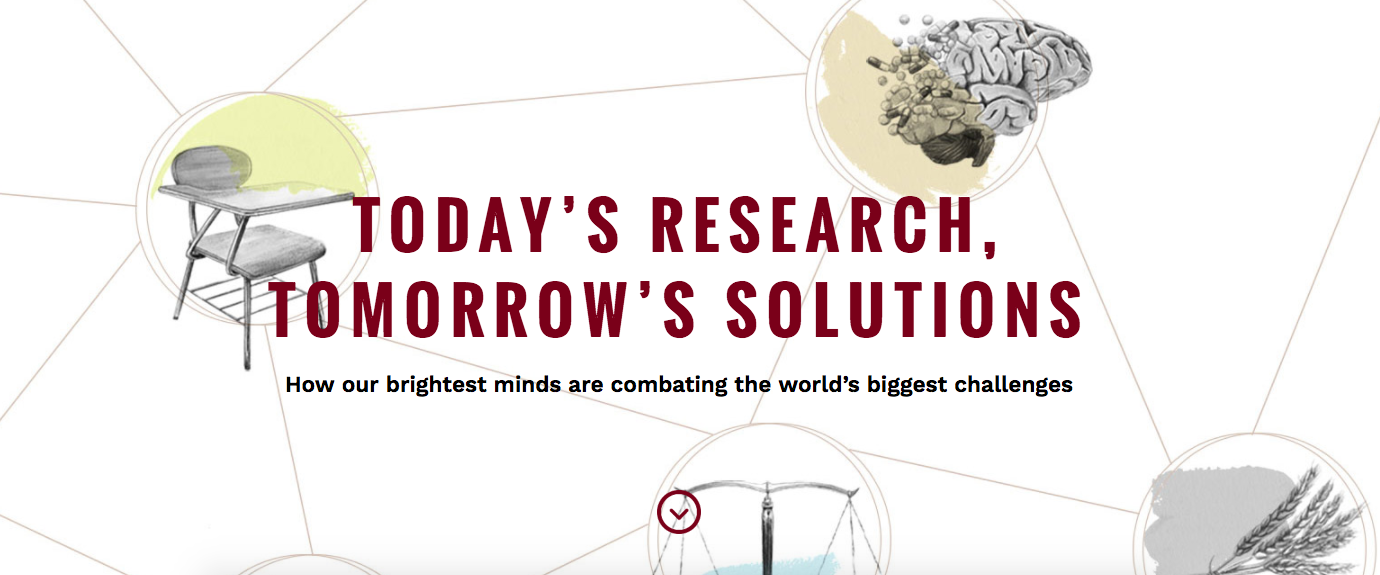Best Branded Content
The Best Branded Content of January: 5 Brands Embracing Real Facts
During a normal year, we’d be talking about Super Bowl commercials. Which beer company will objectify women? Which forgotten ’80s actor will endorse a smartphone and jar some bizarre childhood memories? Who exactly is J.D. Power, and why does he have associates?
But this is not a normal year. After only one month, it’s already the year of alternative facts, fear, chaos, intimidation, and denial. The first time I heard about alternative facts, I thought it sounded like an advertising term. Like a cereal brand pretending its sugary breakfast could improve your immune system. False advertising has always been around, but in the context of current events, it just feels more pernicious.
So for this month’s best branded content roundup, I thought it would be appropriate to highlight the organizations interested in legitimate facts. Here are five brands that used January to focus on honesty, transparency, and useful information.
Lattice: How much does employee turnover really cost?

Geek out with me over corporate turnover for a second. (Never thought I’d write that sentence.) Jack Altman, the CEO of Lattice, an HR software company, wrote an incredibly informative article about how to accurately calculate the cost of losing employees. To most people, that topic must sound as appealing as Nicholas Cage reading 50 Shades Darker. This piece, however, manages to be interesting to a broad audience while also tying back to the mission of Altman’s company. It’s been liked nearly 900 times so far on Medium, and is a textbook example of effective content marketing.
Most impressively, Altman manages to show off some expertise and help potential customers without mentioning his product at all. The blog post is very straightforward. And there’s even a spreadsheet/calculator anyone can use for their own business. Other brands should take note.
Stivoro: A Deadly Serious Matter
I’m all for a good public service announcement, especially one from the Netherlands that uses blunt humor and the sharp intonations of the Dutch language to highlight the wickedness of the tobacco industry. This two-minute clip follows employees of a tobacco company at a going-away party for a colleague. But instead of the usual smalltalk and good-natured roasting, the premise hinges on a surreal question: What if people in the tobacco industry spoke the truth out loud?
Well, they’d hold a rousing toast to “New addicts” and say things like, “I do not know how to explain to my family that I work here.”
As Adweek put it: “It’s totally sociopathic. But in a fun way!” But more than that, it’s a creative way to frame a serious problem. The humor is dark as hell, which keeps you thinking about the issue long after the video ends.
University of Minnesota/T Brand Studio: Today’s Research, Tomorrow’s Solutions

We’re expecting to see a big content marketing boom in higher education in the near future. Most colleges have some sort of defining personality, but you wouldn’t know it looking at their marketing collateral. Pretty much every school’s homepage looks like a stock photo of staged diversity. Alumni magazines tend to read like glorified brochures. Legacy only goes so far.
To establish a new legacy, the University of Minnesota partnered with T Brand Studio to produce journalistic profiles about professors working on scientific solutions. Issues ranged from addiction to human rights to hunger. The stories stay rooted in the impact of the research, and avoid pumping up the school. And the clean design with pencil sketches makes for an all-around sophisticated presentation that helps the Gophers look good.
Starbucks: Living Our Values in Uncertain Times
Press releases usually don’t make this list because most press releases aren’t very important. But the note Starbucks CEO Howard Schultz published last weekend is an exception. While executives at major companies tentatively responded to the earthquake of policy coming out of Washington—or didn’t respond at all—Schultz made a clear commitment to hire 10,000 refugees over the next five years.
The hiring plan set off a surge of press coverage, most of it positive. (More jobs is good, right?) Until, of course, conservative protesters started the #boycottStarbucks hashtag. Regardless of political leanings, you have to acknowledge that Schultz’s comments became important news. The PR play will probably help the company attract more loyal customers, much in the same way a clear point of view led to a jolt of paid subscriptions to media outlets like The New York Times, The Atlantic, and Vanity Fair.
Square: Yassin Falafel
Major media outlets and the White House have each shaped the refugee narrative in their own ways, but what about the actual refugees? It seems like we don’t really get to hear their stories, unless it’s through a quick anecdote in a speech or an article. That’s where the power of video comes in.
Square just released its first short documentary. It focuses on a Syrian refugee, named Yassin, who moved to Tennessee and opened his own falafel restaurant. The video runs eight minutes, which means Yassin gets some time to breathe and tell his story. Early on, he was intimidated by big cars and highways. Since he didn’t speak English, it took him two months to realize there was a mosque four minutes from his home. These little details really bind his story together.
It’s a poignant look at the American dream, and it sets the stage for Square to produce some intimate profiles about the small business owners who use its services. The premise, which Yassin puts nicely, is: “Having a business will give you a chance to represent yourself.” What could be more American than that?
Anything I missed? Suggestions for next month? Know the whereabouts of J.D. Power’s associates? Find me on Twitter @JordanTeicher or email me at jordan@contently.com.
Image by SquareGet better at your job right now.
Read our monthly newsletter to master content marketing. It’s made for marketers, creators, and everyone in between.




